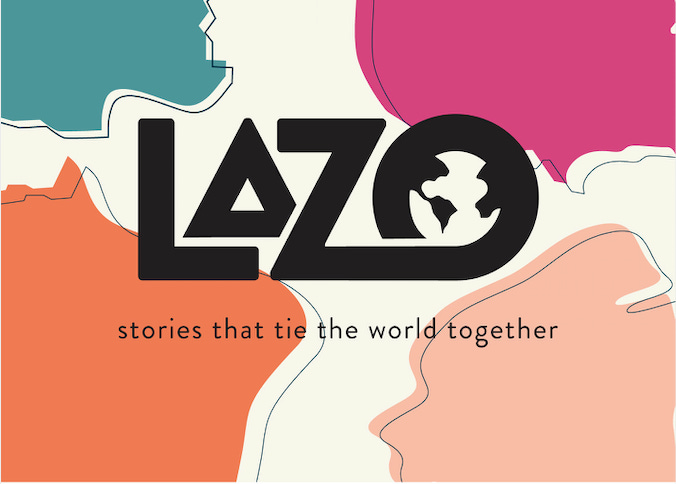I’ll probably be in Vienna by the time you read this, and voters will be heading to the polls in Mexico and Serbia. After ten long days back in the U.S., which included a very short trip to the beach in New Jersey, I’ll spend the next two weeks participating in a reporting fellowship in a country I know shockingly little about.
Longtime readers will remember I wrote a country profile for Austria and spent weeks looking for an English-speaking analyst to discuss local politics before eventually giving up (I have since discovered the Vienna Briefing on Substack, which is worth your time). I hope this trip will remedy my dearth of sources in Austria.
Please write if you have advice on what I should do and see during my first ever trip to this country. I don’t know if I’ll have free time outside the program’s intensive schedule, but I’ll do as much as possible with whatever moment I find.
Over the last week, I was back to work in Washington and published stories and interviews from my recent trip to Estonia. You can read those below. I also watched a delightful Norwegian miniseries on Netflix and this Danish/Iranian movie about a journalist’s quest to identify a murderer. Both are great.
Oh, and I recorded a podcast discussing the view of the U.S. from Europe that you can listen to next week.
That’s all until then, Cristina
What I’m writing:
• Reporting from Estonia, I examine Europe’s biggest existential question: How can governments increase defense spending so the continent isn’t reliant on Washington while maintaining the social expenditures that populations want? Politicians across Europe are trying to answer this difficult question. This story is unlocked and free to read.
• The Biden administration is under enormous pressure from its NATO allies to allow the military alliance to take a more active on-the-ground approach to the war. This story is unlocked and free to read.
• I spoke to French General Philippe Lavigne, NATO's supreme allied commander for transformation, about NATO’s future challenges and technology's role in military preparedness. This interview is unlocked and free to read.
My weekly news blurbs:
What I’m reading:
• The Russian division of Austria’s Raiffeisen Bank will stop processing outgoing payments in U.S. dollars starting on June 10, the bank announced, citing “changed requirements of correspondent banks.” The announcement comes weeks after a top U.S. sanctions official warned Austria and Raiffeisen Bank International of the dangers of doing business in Russia. The Moscow Times has the write-up.
• Europe has only a fraction of the air defense capabilities needed to protect its eastern flank, the Financial Times reported, citing internal NATO calculations that expose Europe’s vulnerabilities.
• The European Union and Ukraine want to launch accession talks before Hungary takes over the rotating EU’s Council presidency on July 1. Politico Europe has the story, which aligns with what sources have told me, too.
• As Hungary stalls aid to Ukraine, the Czech Republic announced raising 1.6 billion euros for artillery shells for Kyiv. Balkan Insight has the story.
• The European Union denounced Russia's removal of buoys marking the border with Estonia on the Narva River, the BBC reports.
• Russian leader Vladimir Putin has his eyes on the Swedish island of Gotland, Sweden’s defense chief Micael Bydén warned. Politico Europe has the story.
• Slovakia’s prime minister was released from the hospital two weeks after being shot and seriously wounded in an assassination attempt, the New York Times reports.
• Less than a fortnight after a failed assassination attempt on Prime Minister Robert Fico, the ruling coalition is again taking steps to restrict access to information and journalistic independence — with one politician warning ominously that “the era of insolence is over.” Politico Europe has the story.
• Kosovo’s Prime Minister Albin Kurti told the Financial Times that the European Union and the U.S. are “too soft” on Serbia and should give Belgrade a deadline to adopt sanctions against Russia.
• Bulgaria’s election next month is boiling down to the role of a sanctioned tycoon and his capacity to undermine the nation’s fragile democracy, Politico Europe reports. To his critics — particularly from reformist, anti-corruption parties — media mogul and MP Delyan Peevski epitomizes Bulgaria’s captured state, in which shadowy oligarchs, spies, and crime gangs wrapped their tentacles around key institutions.
• A German military officer was sentenced to three and a half years in prison for spying for Russia, the BBC reports.
• A former intelligence chief, Dick Schoof, is set to lead the new right-wing coalition government in the Netherlands, Politico Europe reports.
• Spain’s Congress approved the government’s contentious Catalan amnesty law, which has overcome its final parliamentary hurdle before implementation, the BBC reports.
• Locals from the Spanish island of Mallorca say they will “occupy the beaches” as protests against over-tourism intensify, the Telegraph reports. Locals say traffic congestion, high prices, overcrowding, and unaffordable rents are choking them.
• French President Emmanuel Macron said he is ready to recognize a Palestinian state, but only if the Palestinian Authority reforms. Le Monde has the story.
• Slovenia said it would recognize a Palestinian state, joining Ireland, Norway, and Spain, who made the move earlier this week.
• Israel used U.S.-made bombs in Sunday’s deadly strike on a Rafah tent camp, according to weapons experts and visual evidence reviewed by CNN and The New York Times.
• The U.S. State Department falsified a report absolving Israel of responsibility for blocking humanitarian aid to Gaza, according to a former U.S. official who resigned this week. The Guardian has the story.
• European Union foreign ministers have engaged in a “significant” discussion on sanctioning Israel if it fails to comply with international humanitarian law, Politico Europe reports.
• Brazil withdrew its ambassador to Israel, ABC News reports.
• The former head of Mossad, Israel’s foreign intelligence agency, allegedly threatened a chief prosecutor of the International Criminal Court over an inquiry into crimes in Gaza, the Guardian reports.
• The United States is expected to lift its ban on the sale of offensive weapons to Saudi Arabia, potentially in the coming weeks, the Financial Times reports.
• Preliminary results of South Africa’s vote indicate the ruling African National Congress party may lose its majority, the BBC reports.
• North Korea dropped at least 260 trash balloons into South Korea, prompting authorities to warn its residents to stay indoors, the Washington Post reports.
• A Hong Kong court found 14 democracy activists guilty of subversion and acquitted two in a landmark case under the Beijing-imposed national security law, the Washington Post reports.
• Thailand’s former prime minister, Thaksin Shinawatra, will be indicted on charges of insulting the monarchy, the BBC reports. The controversial leader returned to Thailand after 15 years in exile and is being charged over an interview he gave to a Korean newspaper nine years ago.
• India’s beach paradise Goa is overrun with digital nomads, Rest of World reports. Rents are up, and startups are all over the state, but many locals can’t get jobs.
You can write to me for any reason at c.maza@protonmail.com







